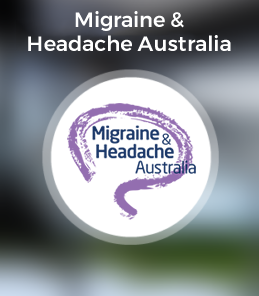Description
Parkinson’s disease is a progressive, degenerative neurological condition that affects the control of body movements. It causes trembling in the hands, arms, legs, jaw, and face; rigidity or stiffness of the limbs or trunk; slowness of body movements; and unstable posture and difficulty in walking. Early symptoms are subtle and occur gradually.
It happens when the neurons (nerve cells) that normally produce dopamine in the brain gradually die. The death of these cells leads to abnormally low levels of dopamine, a chemical which helps relay messages between areas of the brain that control body movement. Low levels of dopamine give rise to difficulty in controlling muscle tension and muscle movement, both at rest and during periods of activity.
Parkinson’s disease currently affects over 100,000 Australians, and about 32 new cases are diagnosed every day (1). Approximately one to two people per 1,000 are estimated to have the disorder, with the incidence increasing to one in 100 of people over the age of 60. It is slightly more common in men than in women.
So far, scientists have not determined the reason why some people develop Parkinson’s disease and others do not. Suggested causes include environmental factors such as pesticides, toxins and chemicals; genetic factors (although the disease appears to be inherited in only a small percentage of cases) and head trauma.
Treatment
A variety of medications enable the disease to be managed and provide dramatic relief from the symptoms. In some cases, surgery is an appropriate treatment. Some doctors recommend multi-disciplinary treatment by physiotherapists, dietitians and counsellors. No two people will experience the condition in the same way, so management will vary.
Prognosis
Parkinson’s disease is a chronic, progressive illness, and no drug can prevent the progression of the disease.
Some of the Parkinson’s Disease Research we have funded
In 2019 Dr Julia Pagan was the recipient of Brain Foundation grant funding for research into Parkinson’s Disease – click for more.
In 2018 Dr Lyndsey Collins-Praino was the recipient of Brain Foundation grant funding for research into Parkinson’s Disease – click for more.
Further Information and Support
Click here for the latest Australian research papers on Parkinson’s Disease.
Support
Parkinson’s Australia
Parkinson’s Australia is the national advocacy body representing people living with Parkinson’s, their families and carers, researchers and health professionals in the Parkinson’s community. They coordinate support services for each state / territory, which are also listed below. All divisions share the same phone number for their main support line.
Phone: 1800 644 189
www.parkinsons.org.au
Fight Parkinson’s – VIC
Fight Parkinson’s is a leading source of specialised health information, advice, and services. Through research, education, and support, they strive to improve the lives of people living with Parkinson’s or Atypical Parkinson’s (PSP, MSA and CBS).
www.fightparkinsons.org.au
Address: Suite 6, Waterman Business Suites, Level 1, 793 Burke Road, Camberwell, VIC 3124
Fighting Parkinson’s (The Hospital Research Foundation Group) – ACT, SA, NT
Fighting Parkinson’s is passionate about maximising choice, independence, mental health and wellbeing for people impacted by Parkinson’s or other neurological and movement disorders through support, education, advocacy and research in the ACT, NT and SA.
fightingparkinsons.org.au
ACT Address: Unit 6, 32 Thesiger Court, Deakin ACT 2600
SA/NT Address: 25 King William Road, UNLEY SA 5061
Parkinson’s NSW – www.parkinsonsnsw.org.au
Address: Macquarie Hospital Building 17, 51 Wicks Road, North Ryde NSW 2113
Postal address: PO Box 71, North Ryde BC, 1670 NSW
Parkinson’s Queensland – www.parkinsonsqld.org.au
Address: Suite 3, Level 2, 2 Clunies Ross Court, Eight Mile Plains QLD 4113
Postal address: PO Box 4718, Eight Mile Plains QLD 4113
Parkinson’s Western Australia – www.parkinsonswa.org.au
Address: The Niche, 11 Aberdare Rd, Nedlands, WA 6009
Parkinson’s Tasmania – www.parkinsonstasmania.org.au
Address: PO Box 608, Kingston TAS 7051
Information
healthdirect: trusted health information and advice online and over the phone (1800 022 222), available 24 hours a day, 7 days a week. Funded by the governments of Australia.
www.healthdirect.gov.au
National Institutes of Health – USA
https://www.ninds.nih.gov/Disorders/All-Disorders/Parkinsons-Disease-Information-Page
Michael J Fox Foundation – USA
www.michaeljfox.org
Parkinson Foundation – USA
www.parkinson.org
Worldwide Education & Awareness for Movement Disorders (WE MOVE)
www.wemove.org
References
- S Bivol et al, 2022, Australian Parkinson’s Genetics Study (APGS): pilot (n=1532). DOI: 10.1136/bmjopen-2021-052032
Reviewed by Professor John Morris, Neurologist, Westmead Hospital
DISCLAIMER: The information provided is designed to support, not replace, the relationship that exists between a patient / site visitor and his / her existing health care professionals.




 The Brain Foundation is the largest, independent funder of brain and spinal injury research in Australia. We believe research is the pathway to recovery.
The Brain Foundation is the largest, independent funder of brain and spinal injury research in Australia. We believe research is the pathway to recovery.